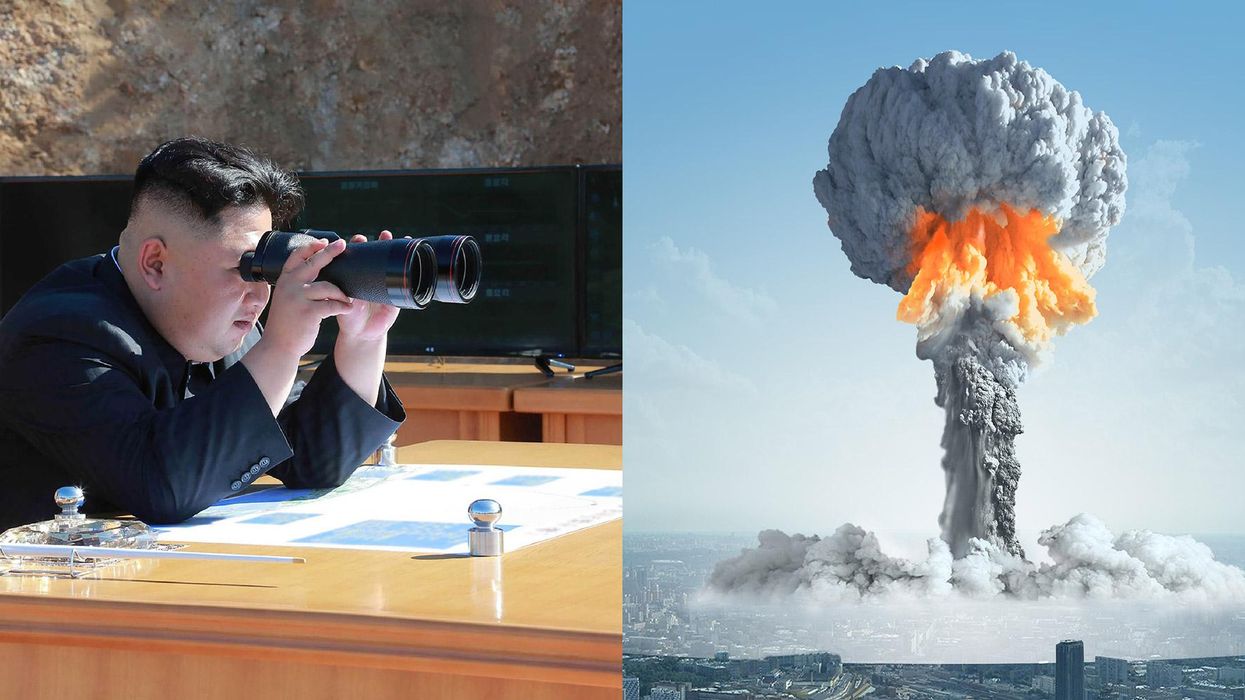Mimi Launder
Oct 13, 2017

Picture:
Getty Images / STR / Contributor; iStock / KREMLL
There has been far too much news about nuclear war this year.
Just this week, fears of a fresh hydrogen bomb test were sparked after a 2.9-magnitude earthquake occurred near a nuclear test site in North Korea.
But powerful tests like these may have damaged the country's nuclear hopes.
North Korea's nuclear test site may now be unfit for further use.
With last month's test explosion clocking in at ten times larger than the 1945 Hiroshima blast, the tectonic plates around the testing area were most likely weakened, anonymous officials told CBS News.
Earthquakes don't naturally occur in the region, but there have been four since the test, which was the country's sixth and largest.
Civilian experts told CBS News that North Korea may now have to stop using the site.
Kane Yull Sah, a nuclear engineering professor at Seoul National University, described a further, powerful detonation as:
potentially suicidal.
As well as the weakened ground, Sah is referring to the threat of a volcanic eruption at Mount Paektu, which is about 60 miles away and last erupted in 1903.
Kiom So-gu, head researcher at the Korea Seismological Institute, told NBC News:
The explosion from the Sept. 3 test had such power that the existing tunnels within the underground testing site might have caved in.
I think the Punggye-ri region is now pretty saturated.
If it goes ahead with another test in this area, it could risk radioactive pollution.
Top 100
The Conversation (0)













